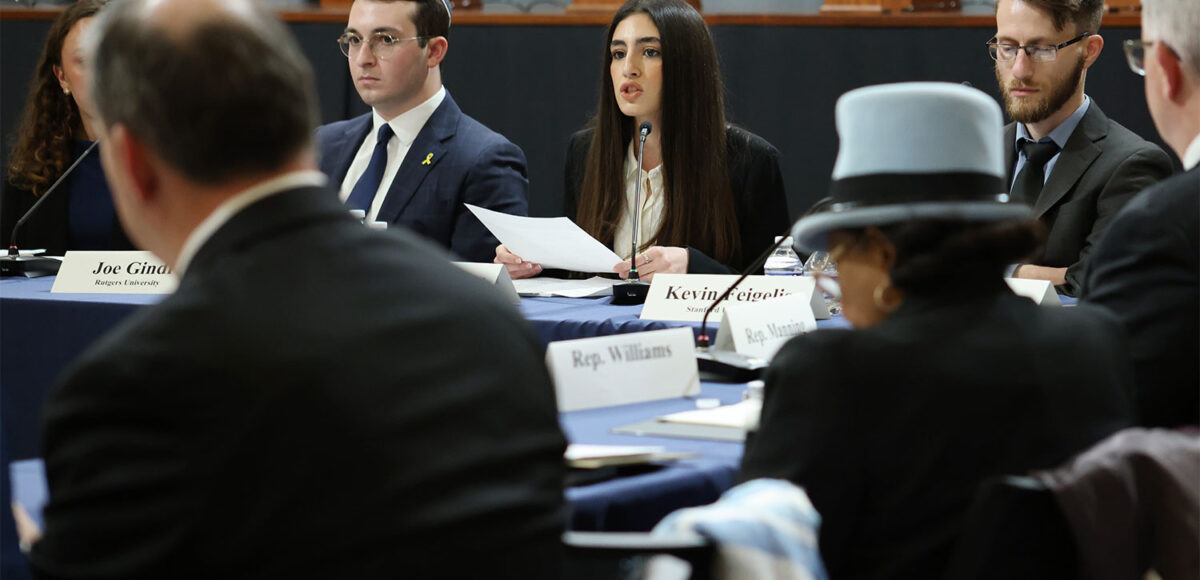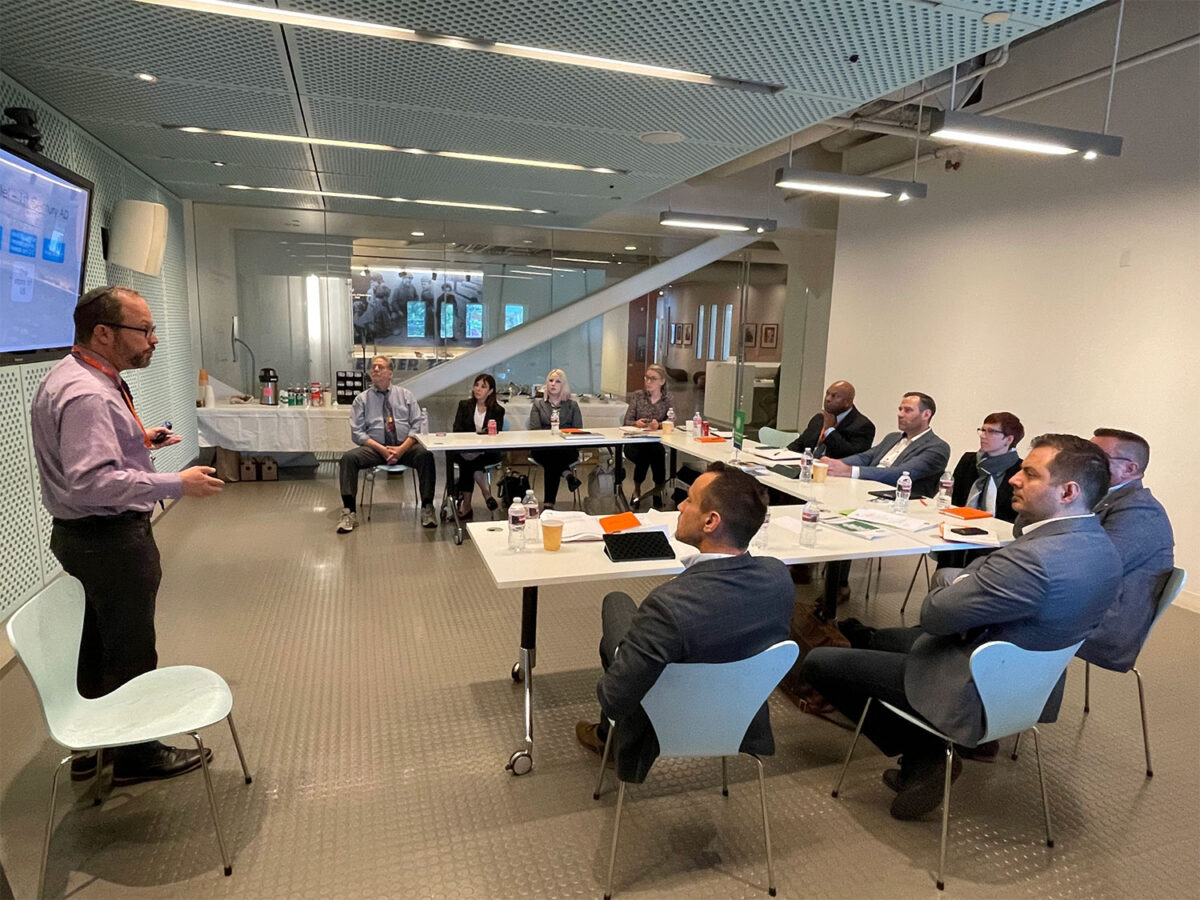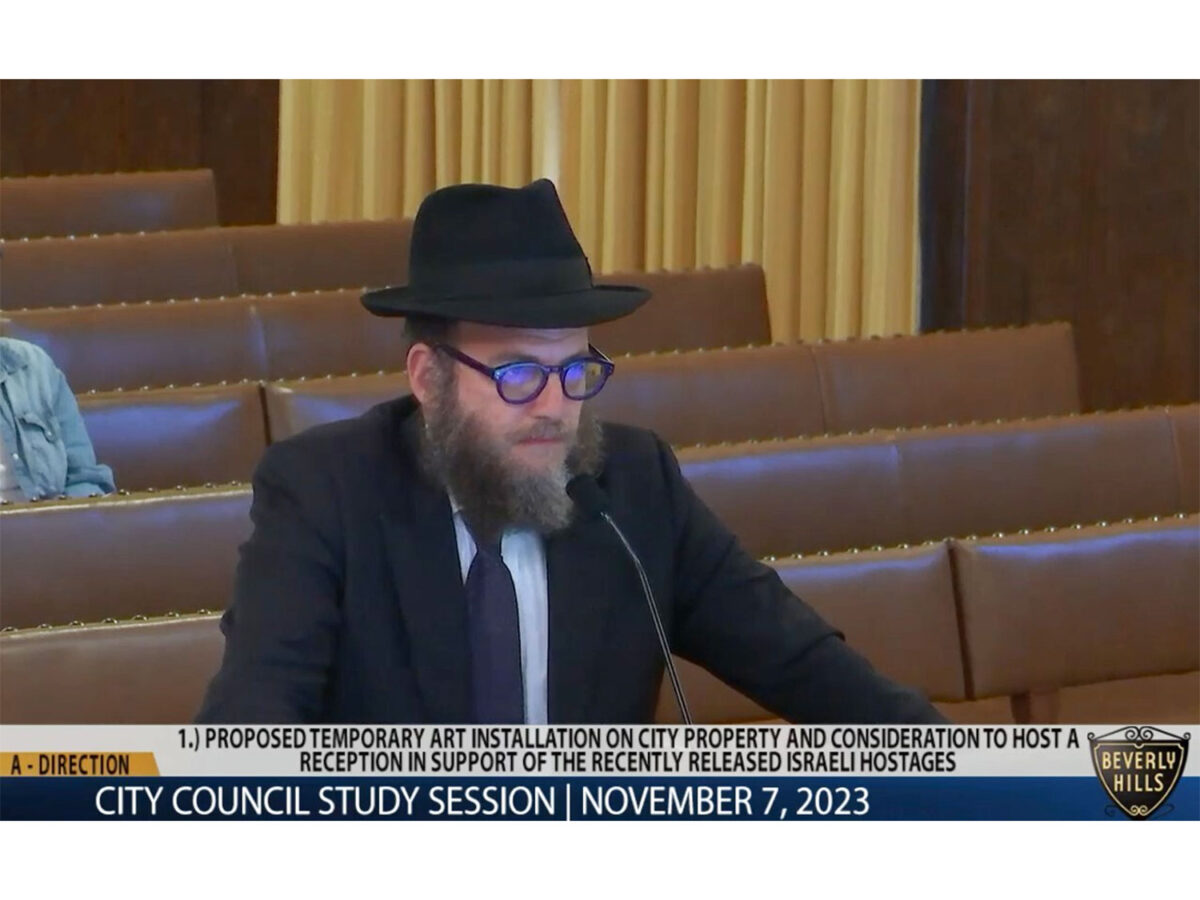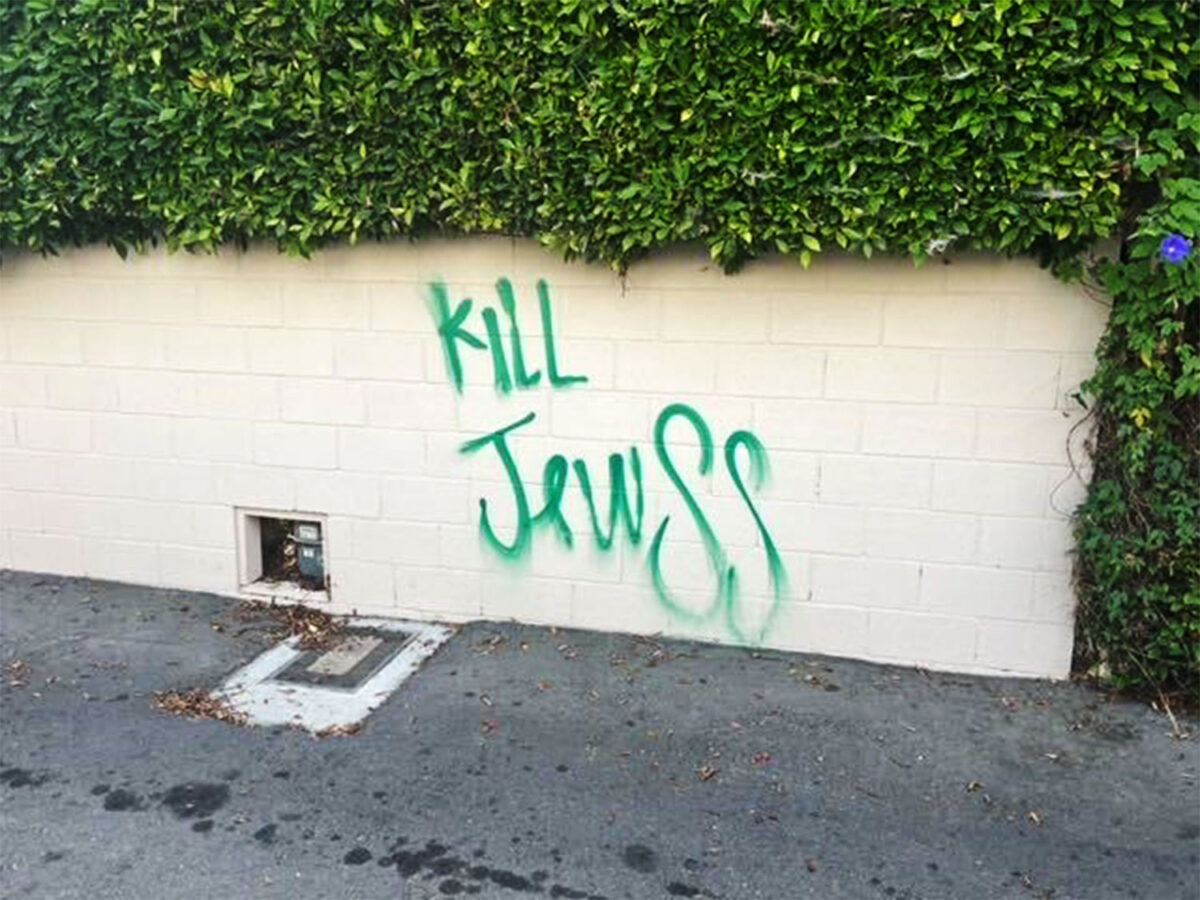In a recent discussion entitled “Roundtable with Jewish Students Impacted By Antisemitism” at the House of Representatives Committee on Education & the Workforce, two young Beverly Hills locals testified on behalf of the Jewish community to address how antisemitism has bled into a new generation.
Yasmeen Ohebsion is an alumna of Beverly Hills High School, a full-time student at Tulane University and a proudly practicing Jew. In recent months, however, these titles have been at the center of a major conflict in her life. Ohebsion is also the co-president of the Movement to Address Antisemitism on her college campus, where students are discriminated against, verbally attacked and assaulted for their religion.
In her testimony before Congress on Feb. 29, Ohebsion stated that she witnessed Jewish students being beaten with a belt during a school protest for Palestine, and she described an incident where she was targeted by another student for wearing the Star of David. She also found from data she gathered around campus that over 55% of Jewish students feel “unsafe” or “extremely unsafe” at Tulane.
But the problem isn’t just among her peers. Members of the campus administration have failed to sufficiently address the mistreatment of students, according to Ohebsion.
“In my last meeting with the Chief Diversity Officer, I told her that I was very concerned with the state of antisemitism on campus and expressed that I myself could list 50 incidents of antisemitism that had occurred, and I’m only one student,” she told the Courier. “And she responded to that by saying, ‘If you could list 50 incidents, I could list 150 [incidents] of anti-Black racism, misgendering, transphobia, et cetera.’”
The problem isn’t unique to Tulane. Eden Yadegar, a Brentwood School alumna and student at Columbia University, testified alongside Ohebsion. Yadegar also fights against antisemitism on her campus through her club, Students Supporting Israel, an advocacy group that isn’t exclusively Jewish, but one that supports “Israel’s right to exist,” as she explained.
Students at Columbia have faced many of the same issues as those at other campuses around the United States.
“Jewish students are harassed, we’re intimidated, we’ve been physically assaulted on our campuses and bullied by our professors and by our peers,” Yadegar told the Courier.
While many students fight against antisemitism, the issue lies in administrative failure to step up and take action against it. Yadegar links this to a lack of support for Jews as a minority.
“Jewish people are one of the only minority groups that don’t get to define their own identity and sort of define their own oppression,” she said.
Yadegar’s family is one of many that fled Iran to be able to safely practice their religion in the United States. Today, a new generation of Jews faces the same hatred in the place where they once sought refuge. Much of the antisemitism that’s being displayed on college campuses can be traced back to the current war in Gaza and social media has played a part in shaping the narrative among students and young adults.
Sidechat, a Columbia-exclusive social media platform has been an epicenter for Jewish hatred. Students have made violent threats and even downplayed a swastika that was graffitied on a bathroom stall, saying “It’s f-ing graffiti not at all comparable to anti-Palestinian attacks.”
“If only we could have more people in this age group of 18 to 25 actually being exposed to the truth and actually reading full articles and truly understanding the scope of the issue, rather than seeing these small snippets that make them feel like Israel’s carrying out this genocide and that Israel’s an apartheid state and all of these mistruths and falsehoods about the situation,” said Ohebsion.
Education and spreading correct information on the issue is the biggest battle. Through their activism on their campuses and testimony for Congress, both women hope to increase diversity, equity and inclusion (DEI) training across the nation while pushing for more support for the Jewish community.
“Jews unfortunately fall into this category of being white, privileged people that are undeserving of DEI services,” Ohebsion told the Courier.
Yadegar explained that she fights against injustices because she knows local governments and universities can do better. Her community back home set a powerful example of what this could look like.
“The way that they empower the Jewish community in Beverly Hills really should be an example to cities and universities across the country,” she said.







